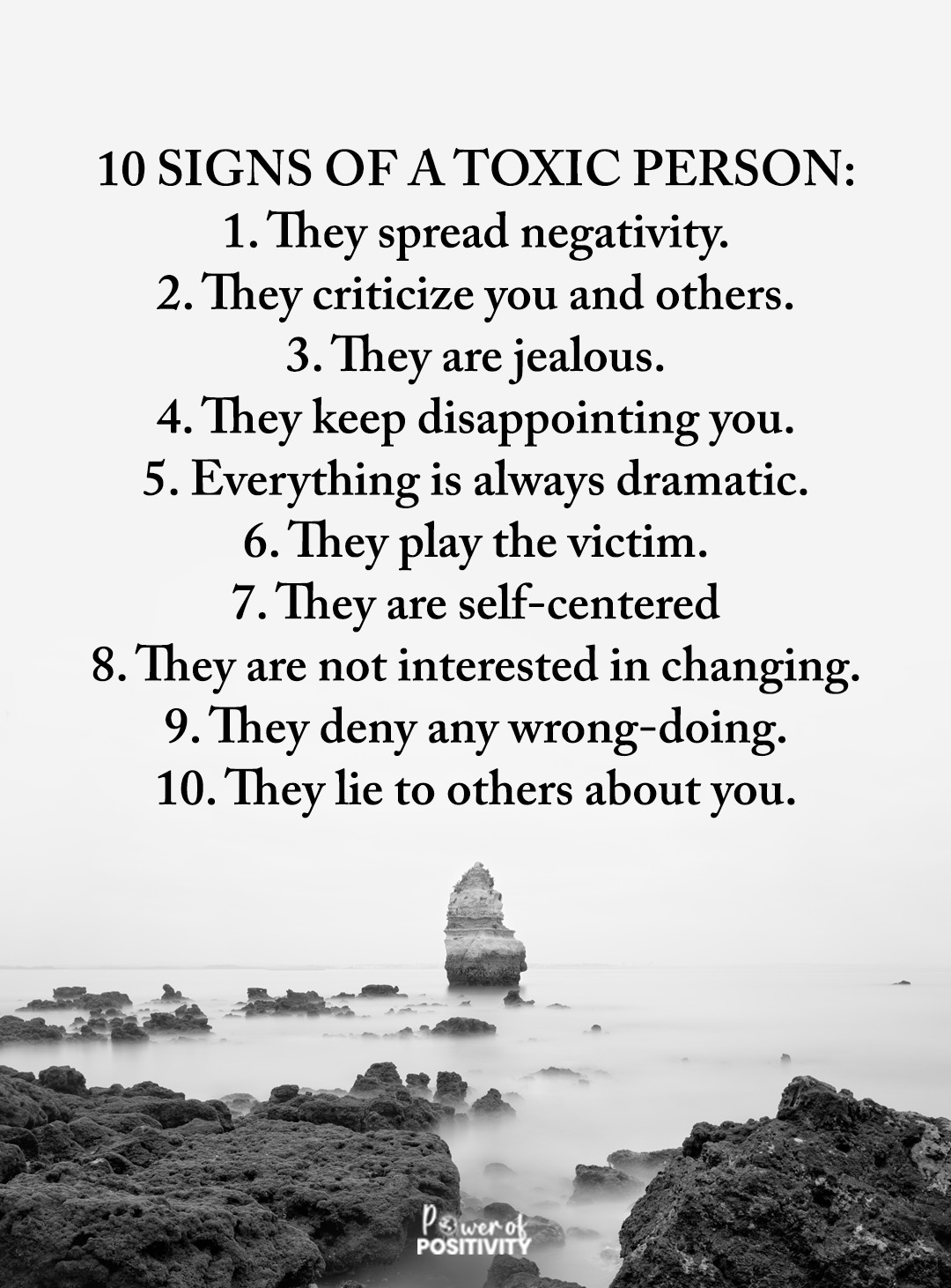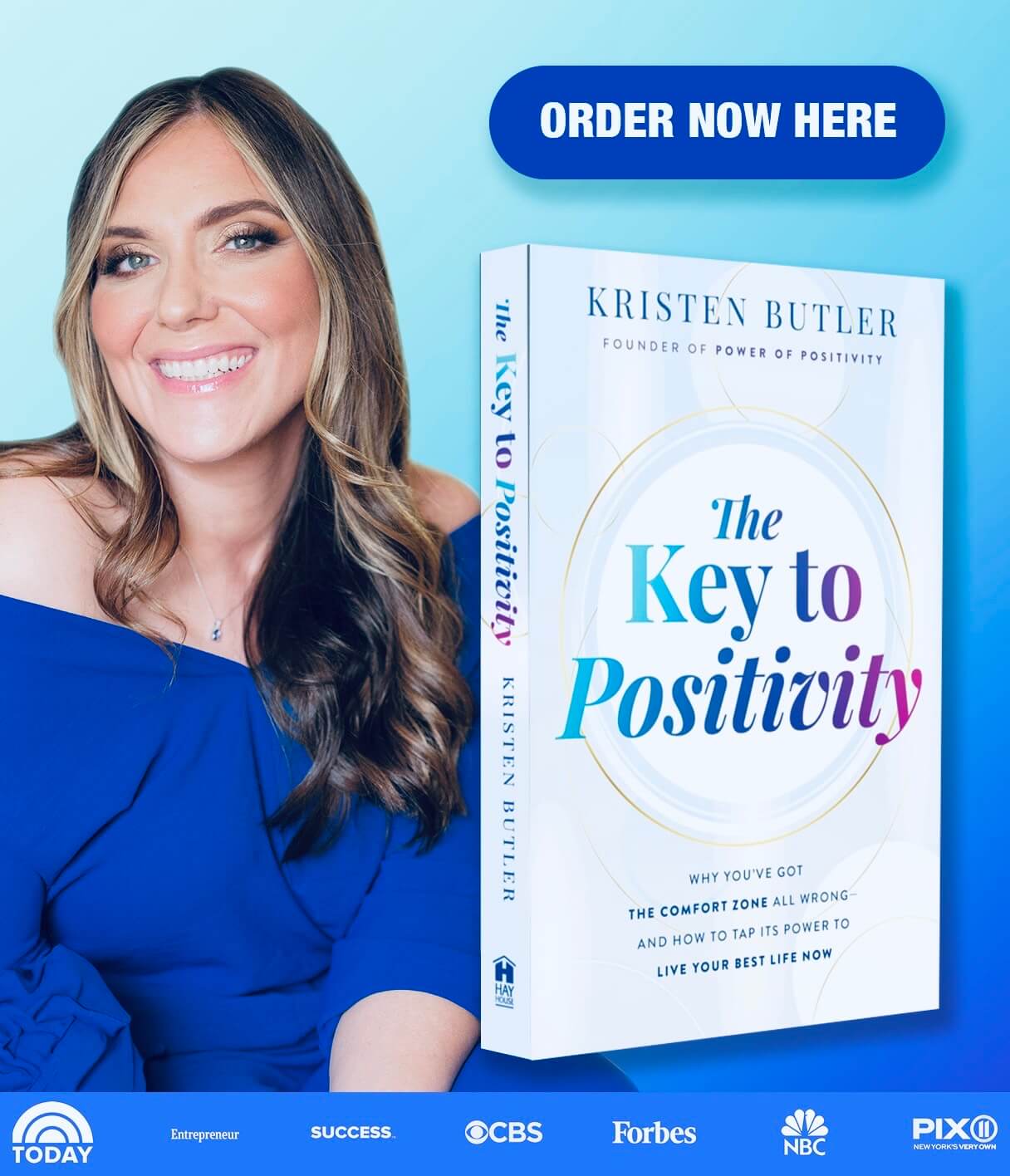Knowing the signs of toxic people can keep you from mistakenly spreading their negativity.
Being around toxic people can be like walking through a beautiful garden. Everything appears perfect. But there’s one plant that releases a toxic gas, slowly poisoning everything around it. Just like that harmful plant, such negative people can infiltrate your life and slowly drain your happiness, positivity, and mental health.
Recognizing their specific habits is crucial to protecting your well-being.
What Are Some Key Toxic People Habits?
Here are twenty telltale habits of toxic people that most people often overlook or ignore. Still, the negative fallout can significantly impact our lives.
1 – Toxic People Constantly Interrupt Others
Have you ever tried sharing an important story only to be cut off mid-sentence? Interrupting is more than just rude. Indeed, it’s a sign of disrespect. When someone constantly interrupts, they’re essentially saying that what you have to say isn’t important.
This habit can erode relationships because it prevents meaningful, two-way communication. Over time, it leads to frustration and resentment as your thoughts and feelings are consistently devalued.
2 – One-Upping Every Story
Sharing experiences is a way to connect, but toxic people often twist this into a competition. If you mention a recent achievement or a personal story, they quickly jump in with a bigger, better tale.
This one-upping behavior diminishes your experiences. It also makes you feel undervalued. It turns conversations into battles for attention rather than moments of connection and mutual respect.
3 – Negative Individuals Play the Victim
Toxic individuals refuse to take responsibility for their actions rather frequently. Instead of accountability, they choose to play the victim. Every setback is someone else’s fault, and they constantly seek sympathy rather than solutions.
This behavior is emotionally draining for those around them, as it shifts the burden of their problems onto others. Over time, their perpetual victimhood can create an unbalanced relationship where you’re always offering support but never receiving it.
4 – Toxic People Often Give Backhanded Compliments
“You’re so brave for wearing that outfit.” At first glance, it seems like a compliment, but there’s an underlying insult. Backhanded compliments are a subtle form of toxicity that confuses and hurts you.
They’re designed to undermine your confidence while appearing superficially polite. This habit can slowly chip away at your self-esteem. It might also make you second-guess your worth.
5 – Negative People Gossip Excessively
Everyone enjoys a bit of gossip occasionally, but for toxic people, it’s a way of life. Constantly talking about others behind their backs creates a toxic environment. It fosters mistrust and suspicion; you can never know what they say about you when you’re not around.
Excessive gossiping can destroy friendships and work relationships. The harmful behavior leaves a trail of damaged trust in its wake.
6 – Being Overly Critical
Constructive criticism can be helpful, but toxic people often go beyond that, focusing solely on flaws and mistakes. Their relentless criticism can be demoralizing and hurtful, making you feel inadequate no matter how hard you try.
This constant negativity impacts your self-esteem and can lead to a toxic, one-sided relationship. You probably feel as if nothing you do is ever good enough.
7 – Toxic People Enjoy Manipulating Situations and People
Manipulation is a hallmark of toxic behavior. Whether it’s twisting facts, playing on your emotions, or using guilt to get their way, toxic people are skilled at bending situations to their advantage.
This manipulative behavior can make you feel controlled and confused as you constantly second-guess your perceptions and decisions. It undermines trust and creates a power imbalance in relationships.
8 – Negative Folks Refusing to Apologize
Apologizing is a crucial part of maintaining healthy relationships. It shows empathy, accountability, and a willingness to make amends. However, toxic people often refuse to apologize, no matter how they’re in the wrong.
Their inability to say “I’m sorry” reflects a lack of empathy. It also shows a total lack of respect for one’s feelings. This habit can create deep rifts in relationships as unresolved issues and hurt feelings accumulate over time.
9 – Toxicity Means Shifting the Blame
Similar to playing the victim, shifting blame is a way for toxic people to avoid taking responsibility. Whenever something goes wrong, they quickly point fingers at others.
A Harvard Business Review article points out how humans are wired to blame others. Psychologically, this behavior comes from fundamental attribution bias. The author also notes that it is toxic and must be curtailed.
This habit erodes trust and accountability, making addressing and resolving issues challenging. It creates an environment where mistakes are hidden rather than addressed, leading to ongoing problems and frustration.
10 – Toxicity Leads to Being Inconsistent
Toxic people are often unpredictable, swinging between extremes of behavior and breaking promises. This inconsistency can create anxiety and instability in relationships, as you never know what to expect.
One day, they might be supportive and kind, but the next, they might be distant or even hostile. This rollercoaster of emotions can leave you feeling insecure and stressed, constantly trying to navigate their erratic behavior.
11 – Toxic People Need to Be the Center of Attention
Everyone enjoys a bit of attention, but toxic individuals need to be the center of it all the time. They dominate conversations, overshadow others, and crave constant validation.
This behavior can be exhausting for those around them, creating an imbalance where their needs and achievements always take precedence. It fosters resentment and frustration as others feel overlooked and undervalued.
12 – Toxic People Give Others the Silent Treatment
Silent treatment is a passive-aggressive tactic used to control and punish. By refusing to communicate, toxic people create an emotional power play that leaves you feeling hurt and confused.
This behavior can be particularly damaging because it shuts down any possibility of resolution. It prolongs conflicts and creates a hostile environment where communication is stifled.
13 – Negative People Love Playing Mind Games
Mind games are another tool in the toxic person’s arsenal. These behaviors are designed to manipulate and control, whether it’s giving mixed signals, creating confusion, or setting traps.
Mind games erode trust and create a constant state of uncertainty. They make you question your perceptions and sanity, leaving you feeling off-balance and disoriented.
14 – Toxicity Leads to Constantly Complaining
Perpetual negativity is draining. Toxic people often have a never-ending list of complaints, focusing on what’s wrong rather than right.
This constant complaining can drag down the mood and morale of those around them. It creates a pessimistic environment where problems and grievances overshadow positivity and solutions.
15 – Toxic People Show Ingratitude
Gratitude is a cornerstone of healthy relationships. It shows appreciation and respect for others. Toxic people, however, rarely express gratitude. They take others’ efforts and kindness for granted, making those around them feel unvalued and exploited.
This lack of appreciation can erode relationships. Over time, some people feel their contributions are ignored or dismissed.
16 – Always Making Everything About Themselves
Self-centered behavior monopolizes conversations and events, turning every situation into a stage for the toxic person. Whether it’s constantly steering conversations back to themselves or overshadowing others’ achievements, this behavior creates frustration and alienation.
It prevents genuine connection. It also makes others feel like supporting characters in their own lives.
17 – Negative People Frequently Break Your Boundaries
Personal boundaries are essential for healthy relationships. They define what’s acceptable and what’s not. Toxic people, however, often ignore these boundaries, pushing past limits and disregarding others’ comfort.
This behavior shows an utter lack of respect and consideration. Thus, it can lead to feelings of violation and discomfort. Over time, it can create significant strain in relationships.
18 – Toxic People Hold Grudges
Holding onto past grievances is a toxic habit that poisons current interactions. Toxic people often refuse to forgive and forget, bringing up old issues to justify current behavior.
This habit prevents growth and resolution, keeping relationships in a cycle of blame and resentment. It creates a toxic environment where the past constantly overshadows the present.
19 – Negative People Are Passive-Aggressive
Passive-aggressive behavior is indirect aggression. It includes backhanded compliments, silent treatment, and other subtle actions that convey hostility without open confrontation.
This behavior can be incredibly frustrating because it’s challenging to address and resolve. It creates tension and conflict, undermining open and honest communication.
20 – Negativity Enjoys Sabotaging Others
Toxic people often feel threatened by others’ success, leading them to sabotage those around them. Whether spreading rumors, undermining efforts, or creating obstacles, this behavior stems from jealousy and insecurity.
Sabotaging others not only harms the victim but also creates a toxic environment where trust and cooperation are undermined.
Final Thoughts on the Telltale Habits That Give Away Toxic People
Recognizing and addressing toxic people’s specific habits is crucial to protecting your mental and emotional well-being. You can create healthier relationships and environments by identifying and addressing these behaviors. You’re a worthy person. You deserve to be surrounded by positivity and respect. Don’t ignore these behaviors or let these toxic habits drain your happiness and peace. Seek relationships that uplift and support you, and don’t hesitate to set boundaries to protect your well-being.





















